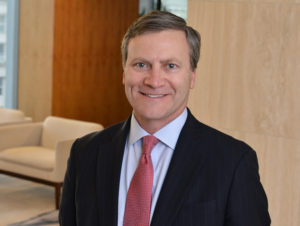Featured Expert Contributor, White Collar Crime and Corporate Compliance
 Gregory A. Brower is Chief Global Compliance Officer for Wynn Resorts. He also serves on WLF Legal Policy Advisory Board and is a former U.S. Attorney.
Gregory A. Brower is Chief Global Compliance Officer for Wynn Resorts. He also serves on WLF Legal Policy Advisory Board and is a former U.S. Attorney.
A recent paper prepared by Skadden Arps attorneys and released by the U.S. Chamber’s Institute for Legal Reform (“IRL”) highlighted the recent proliferation of third-party litigation funding (“TPLF”) and the potential national and economic security risks associated with this trend. The paper warns that the lack of safeguards in this area provides a clear path for foreign adversaries to infiltrate the American legal system, and suggests, among other potential solutions, amending the Foreign Agent Registration Act (“FARA”).
TPLF is a growing business model whereby a plaintiff and/or their attorney receives funding from a third party to finance a civil lawsuit in exchange for the third party receiving a contingent interest in any proceeds from the suit. Estimates place the total amount invested in U.S. lawsuits by such arrangements to be between $ 2.5 and 5 billion annually. This funding model began as a way to assist cash-strapped plaintiffs and their lawyers with paying for costly consultants and expert witnesses in single cases but has evolved over time into a means of funding multiple cases and even the general operations of firms that specialize in contingent-fee litigation. More concerning to some, including IRL, is the shift in focus from a pure profit incentive to other goals such as obtaining sensitive information in discovery and the pursuit of business or political advantage. All of this presents a concerning move toward creating a reality in which investors, sometimes including the defendant’s competitors or even foreign actors, have a stake in the outcome of a case despite no connection to the plaintiff or issue or dispute underlying the suit.
In its paper, IRL urges that most concerning among the scenarios presented by this trend is that involving foreign adversaries seeking to use the TPLF model as a way of influencing U.S. litigation to harm our national security. Given our foreign adversaries’ obvious commitment to pursue their national security goals at the expense of ours and by any means possible, IRL suggests that TPLF could be part of this effort. Indeed it is possible that a plaintiff and even their attorney may not even know of a foreign adversary’s interest in the funding of their case. In some cases, the TPLF source may not even care about the economic viability of the suit if the litigation allows access to certain information or advances a political goal. The current state of the law makes it difficult to prevent our adversaries from using potentially unwitting litigants to advance their strategic goals in a way that undermines U.S. national security.
Although there are many U.S. laws and regulation on the books aimed at exposing foreign influence efforts, such as the Committee for Foreign Investment in the United States (“CFIUS”), FARA, and the various anti-money laundering laws, including the Bank Secrecy Act (“BSA”), IRL warns that none specifically addresses the use of TPLF efforts to achieve similar goals. While a few reforms have been suggested, including the Litigation Funding Transparency Act (“LFTA”) now pending in Congress and a proposed amendment to Federal Rule of Civil Procedure 26 which would require the disclosure of TPLF agreements in civil cases, none would go as far as to expose the ultimate sources of the funds that are financing the lawsuit. For this reason, IRL urges that FARA be amended to clarify that its existing attorney exemption does not apply to any attorney who directly or indirectly receives funding from a foreign government where the attorney does not actually represent the foreign government.
While the traditional critiques of TPLF practices—questionable claims, violations of traditional ethical rules, interference with the attorney-client privilege—raise serious issues, the potential harm to U.S. national security increases the stakes significantly and mandates thoughtful consideration by U.S. policy makers.
